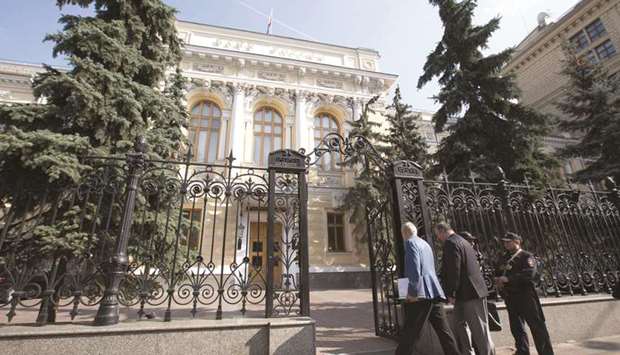In the process, it created the country’s biggest private equity fund that controls at least 10% of Russia’s chicken production, a third of its geological exploration capacity and other hard-to-price companies, according to the former finance minister tapped to clean the lenders up.
The fund, made up of bad assets transferred to sweep out Bank Otkritie FC’s books, has a nominal balance of 1tn roubles, although “in reality it is definitely less,” chief executive officer Mikhail Zadornov said in an interview in St Petersburg. The central bank and Zadornov are now working to identify the value of assets given by Otkritie, B&N Bank PJSC and Promsvyazbank PJSC that will be moved to the fund.
As the central bank presses ahead with a purge of the financial industry to eliminate mismanaged and under-capitalised firms, it’s also taken on a more hands-on approach to rescuing troubled institutions. Instead of outsourcing bailouts and providing investors with cheap credit, a strategy that often failed to restore them to health, the regulator has turned to a new mechanism that’s leaving it with assets coughed up by shareholders.
“We made the call to save three large banks in order to clean up the banking system,” Bank of Russia Governor Elvira Nabiullina said in a Bloomberg Television interview on Thursday at the St Petersburg International Economic Forum. “We were forced to spend a lot of money on the clean-up and rescues. We plan to get part of it back by selling these assets.”
The central bank is limiting the bad-asset fund to holdings of lenders it took over, according to first deputy governor Dmitry Tulin. It’s not interested in assets being offered by other banks, he told reporters in Moscow this week.
In turn, financiers including Alfa-Bank’s Petr Aven have criticised the central bank for not returning the assets to the market and failing to deliver on its promise to support competition among lenders.
Meanwhile, Kirill Dmitriev, chief executive officer of the Russian Direct Investment Fund, has also been tapped to help clean up the mess. Speaking in an interview, Dmitriev said his Kremlin-backed fund is in talks with partners from Arab countries about possible investments into real estate assets that came from the nationalised banks. Zadornov said talks with the former owners about returning assets are ongoing, adding that some of them could end up in jail. The regulator has identified signs of asset stripping of at least 239bn roubles.
Otkritie is still in the forensics stage, which could last another year before it can appraise the value of its assets, according to Zadornov. The Bank of Russia is looking to put the the cleaned-up lender on the block in at least three years, Nabiullina said. For now, the central bank and Otkritie will be getting their hands dirty figuring out what to do with what they call its “non-core assets.”
“Over the last six months, every two weeks we meet with the temporary bank administration to discuss poultry farms, load-bearing walls,” Tulin said. “So don’t listen to anyone who says that the central bank lives in the clouds.”

